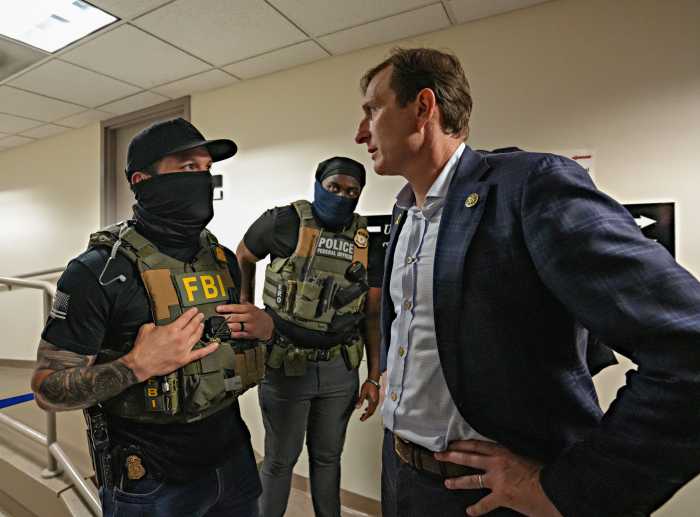By Greater Astoria Historical Society
In conjunction with the Greater Astoria Historical Society, the TimesLedger newspaper presents noteworthy events in the borough’s history.
In November 1961, the Cold War was only an itchy trigger finger away from turning hot and national security was the most pressing issue on the minds of many in Queens. Making a stop at Fort Totten in Bayside that month, Lt. General Robert Wood announced that New York City was defenseless against Soviet nuclear missiles. The commanding officer of the Air Defense Command noted that they could handle bombers approaching our nation’s population centers, but Nike missile batteries surrounding the city would have a much harder time with fast, elusive nuclear-tipped missiles.
Back then, nuclear annihilation was a nightmare never too far from the minds of New Yorkers, but locals in Queens went about their lives undaunted. As a crisp, autumn chill drove folks indoors, movies provided a welcome diversion for many, and November 1961 was a month of classic film. RKO Keith’s Theater in Flushing drew patrons with “The Hustler,” a drama about a small time pool hustler starring Paul Newman, Jackie Gleason and George C. Scott that won two Academy Awards. Over in Jackson Heights, the Polk Theater screened “A Raisin in the Sun.” The drama starring Sidney Poitier and Louis Gossett, Jr. portrays an African-American family struggling to find meaning and identity in Chicago before the civil rights movement of the 1960s.
New York police officer Saverio Saridis was ready for the big time that month. The Singing Cop from Sunnyside and his family boarded a plane to California, where lucrative singing and recording contracts awaited the stocky tenor with the rich, operatic voice. The former patrolman went on to showcase his talents on the Merv Griffin and Ed Sullivan shows. He is best known for his 1962 rendition of the Ray Noble hit “Love is the Sweetest Thing.”
Gemma LaGuardia Gluck overcame fights and trials in her 80 years that would have broken less determined souls. Born in New York City, the older sister of the beloved former mayor chose to remain in Italy after a childhood partly spent on an Army base in the wilds of the Dakota Territory.
Speaking to a reporter from her living room in the Queensbridge Houses, built during the LaGuardia Administration, she recounted her marriage to a Jewish husband and her deportation to Nazi concentration camps during the war. Her husband perished in the brutal conditions, but the LaGuardia name made the Queens resident valuable as a political hostage for the Nazis. She was freed in 1945 and immigrated to New York.
Her famous brother passed away shortly after her return, and the Holocaust survivor was left to rebuild her life in the city of her birth. “Again I was left alone with my daughter and her little son,” she reflected, “but at least we were in the land of opportunity, the land of the free. There was hope here.”
For further information, call the Greater Astoria Historical Society at 718-278-0700 or visit our website at www.astor





































